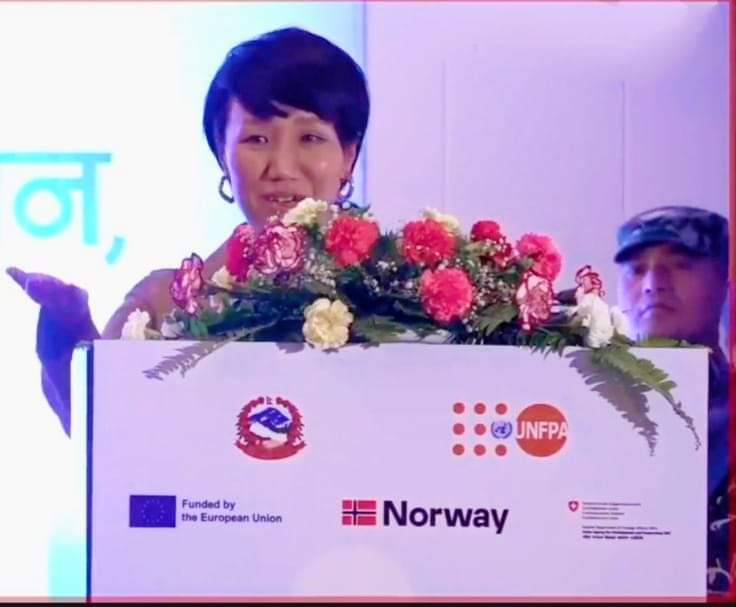Kathmandu, November 14, 2024 – The Ministry of Health and Population, in collaboration with the United Nations Population Fund (UNFPA), has inaugurated the First National Conference on Hospital-Based One-Stop Crisis Management Centers (OCMC) at Hotel Soaltee Crown Plaza. The two-day event, held on November 14-15, brings together distinguished leaders, health professionals, and international representatives to address critical issues in managing and responding to gender-based violence (GBV) and workplace harassment in Nepal.
The conference opened with a video addressing sexual harassment in the workplace, setting the tone for discussions centered on improving healthcare services and support for victims of GBV through hospital-based OCMCs across the country.
Keynote Guests and Speakers
Tanka Prasad Barakoti, Additional Secretary at the Ministry of Health and Population, presided over the event as Chairperson. Honorable Minister of Health and Population, Pradip Poudel, attended as the Chief Guest, emphasizing the government's commitment to strengthening healthcare infrastructure that caters to GBV survivors.
Other notable figures included Dr. Shivraj Adhikari, Vice Chair of the National Planning Commission, and Tapa Bahadur Magar, Chair of the National Human Rights Commission. Their presence underlined the importance of collaborative action across government agencies and human rights bodies to ensure comprehensive support for those impacted by violence.
Kamala Parajuli, Chairperson of the National Women Commission, and Khemraj Gyawali, Deputy Attorney General from the Office of the Attorney General, also participated as special guests, reflecting the strong institutional support for OCMCs as a means to combat GBV at a systemic level.
International Support and Collaboration
The conference also saw significant international engagement, with ambassadors and representatives from the European Union and Switzerland, as well as Ms. Won Yong Hong, Country Representative of UNFPA, attending the event.
These international partners reaffirmed their commitment to supporting Nepal's efforts in addressing GBV and highlighted the importance of sustainable, victim-centered healthcare solutions.
Environmental and Societal Impacts of GBV
Beyond addressing the immediate needs of survivors, the conference recognized the broader implications of GBV on societal well-being, including its environmental and community impacts. Displaced populations and marginalized communities, often the most vulnerable to GBV, are also at higher risk of environmental injustices. Speakers emphasized that strengthening crisis response mechanisms not only aids in individual recovery but also fosters resilience in communities facing environmental challenges, thereby contributing to sustainable development goals.
Concluding Remarks
As the conference progresses, stakeholders are expected to discuss further initiatives to expand the OCMC network and integrate environmental and community health considerations into GBV management strategies. Concluding remarks will be delivered by Hari Prasad Mainali, Secretary of Ministry of Health and Population, reaffirming Nepal’s commitment to a collaborative approach in addressing GBV and building a robust healthcare support system.